Research Article
Aim & Scope
The aim of the journal is to deal with original and comprehensive studies in the field of social and human sciences with a scientific approach.
The publication topics of the journal are within the scope of social and human issues and cover sub-topics such as management-organization, accounting, finance, production management, numerical methods, marketing, economics, law, tourism, education, linguistics, psychology and history et al.
Author Guidelines
GUIDE FOR AUTHORS
1. Journal of Social Sciences is published biannualy by Çağ University and is a peer-reviewed journal.
2. It is obligation that the article which will be sent mustn’t be published in anywhere before.
3. Articles can be published in the following languages: Turkish and English.
4. Articles must be written on MS word and submitted anonymously via Dergipark.
5. The manuscript should not exceed 25 pages including references and appendices.
Page layout: 2,5 cm from above, 2,5 cm from below, 2,5 cm from left, 2,5 cm in from right.
And also they have to be written on A4 pages.
Articles have to be written in Times New Roman with 11 point.
It must be set as single spaced.
6. In original articles, section must be arranged in the way shown below:
Abstract (maximum 200 words)
Abstract in Turkish (maximum 200 words)
Introduction, Conceptual Framework (Literature), Methodology, Findings, Discussion and the Conclusion, References.
7. The title of the articles should be fit with the content; they should be short and understandable, written with capital letters, 14 pt. and centered.
8. The name of the author should be written below the article; Under the name of the writers, their universities the university, faculty, department or institution name, e-mail address and ORCID should be written. If there is more than one writer, the names should be written down by down, faculties, sections name and an e-mail address and ORCID have to be written.
9. The Abstract title should be capitalized with the left edge of the text. The text should be 11 pt. Keywords should be between 3-5 words and GEL Codes should be added under the keywords.
10. In an article, pictures, graphics have to be shown under the name of the “Figure”. Figures and graphics have to be numbered and the name of the figures have to be written below the figure and first letter will be capital in every word.
11. In an article, name of the table should be written with the way first letter will be capital every word and every table have to be numbered.
12. Citations or references to the sources have to written in the parentheses in the article. The surname of the writer, the year of the source and the number of the page have to become left side by side (Smith, 2003: 14). If there are multiple sources, it should be separeted by semicolon (Aaker, 1991; Porter, 2008; Kotler, 2012). If there are more than two writers, it should be shortened like “et. al.” (Harris et. al., 2001: 112).
13. Source lists have to be arranged as the surname of the writers alphabetically.
The book should be arranged as: author surname, initial letter of the name, publication date of the book, the name of the book, publishing house and should be arranged as the publishing place.
Aaker, D. A. (1991). Managing brand equity. The Free Press, New York.
The journal should be arranged as: author surname, initial letter of the name, publication date of the journal, name of the article (italic), name of the journal, Volume (number no): page numbers.
Öztürk, İ. (2010). A literature survey on energy–growth nexus. Energy Policy, 38(1), 340-349.
14. Those articles, not written according to the above mentioned rules, will be returned to the author(s).
Ethical Principles and Publication Policy
Blind peer-review system is applied in the evaluation of the studies submitted to Çağ University Journal of Social Sciences. Scientific studies uploaded through Dergipark are firstly subject to editorial approval. Two referees, who are appointed in accordance with their fields, are requested to evaluate the works approved by the editor. At the end of the evaluation process, the study can be accepted or rejected.
Ethical duties and responsibilities, Publication Ethics Committee (COPE - Committee on Publication Ethics, https://publicationethics.org) and International Committee of Medical Journal Editors (ICMJE - International Committee of Medical Journal Editors, http://www.icmje.org) It has been prepared by taking into account the publication ethics principles, standards and policies determined by.
Price Policy
No fee is charged from the author or institution under any name.
Indexes
Citation Indexes
Other Indexes
Journal Boards
Editor-in-Chief

Çağ Üniversitesi İİBF-İşletme Lisans Çağ Üniversitesi-2003
Çağ Üniversitesi SOBE, İşletme Yönetimi Yüksek lisans -2006
Çukurova Üniversitesi, SOBE - İşletme Pazarlama Doktora- 2012
ÜAK- Pazarlama Doçent-2017
Çağ Üniversitesi 2003- Devam ediyor.
Assistant Editor
Senem Zaimoğlu, Çağ Üniversitesi İngilizce Mütercim-Tercümanlık Bölümü'nde Dr. Öğretim Üyesi olarak görev yapmaktadır. Doktora eğitimini Çağ Üniversitesi İngiliz Dili Eğitimi Anabilim Dalı’nda tamamlamıştır. İlgi alanları arasında ikinci dil öğretmeni eğitimi, dil öğrenme ve öğretmenin psikolojik boyutları, 21. yüzyıl becerileri, İngilizce dil öğretiminde sürdürülebilirlik ve sosyal-duygusal öğrenme yer almaktadır.
Board of Advisory


https://orcid.org/0000-0002-0484-5006
Lisans eğitimini 1984’de İstanbul Üniversitesi Cerrahpaşa Tıp Fakültesi’nde, Yüksek Lisans ve Doktorasını 1994 ve 2003 yıllarında Hacettepe Üniversitesi’nde Sağlık Yönetimi alanında yaptı. 2009 yılında Yardımcı Doçent, 2014 yılında Doçent, 2019 yılında Profesör oldu.
27 Nisan 2020’den bu yana İstanbul Üniversitesi-Cerrahpaşa’da Sağlık Bilimleri Fakültesi Sağlık Yönetimi Bölümü Öğretim Üyesi olarak görev yapmaktadır.
2014-2020 yılları arasında, Acıbadem Üniversitesi’nde; Sağlık Bilimleri Fakültesi’nde Öğretim Üyesi ve Sağlık Yönetimi Bölüm Başkanı, Sağlık Politikaları Uygulama ve Araştırma Merkezi kurucu Müdürü ve Sürekli Eğitim ve Gelişim Merkezleri Müdürü görevlerini yürüttü.
2009-2014 yılları arasında İstanbul Üniversitesi’nde; Rektör Danışmanı ve kurucu Hastaneler Genel Direktörü görevleri ile Öğretim Üyesi olarak İstanbul Üniversitesi Sağlık Bilimleri Fakültesi’nde Sağlık Yönetimi Bölüm Başkanı ve Sağlık Ekonomisi Anabilim Dalı Başkanlığı görevlerinde bulundu.
2000-2009 yılları arasında, özel sektörde; sağlık yönetimi ve sağlık sigortacılığı alanlarında Genel Koordinatör, Danışman, Yönetim Kurulu Üyesi olarak çalıştı.
1984-1999 yılları arasında Sağlık Bakanlığı’nda; Gümüşhane Torul Aktaş Sağlık Ocağı Tabibi ve Gümüşhane İl Sağlık Müdürü, Sağlık Projesi Genel Koordinatör Yardımcısı ve Genel Koordinatör, Bakan Müşaviri ve Müsteşar Yardımcısı olarak görev yaptı.
1990 yılından bu yana Türkiye Sağlık Reformları sürecinde; değişik hükümetler ve yasama dönemlerinde hazırlanan kanun tasarı taslaklarının teknik çalışmalarında, Devlet Planlama Teşkilatı’nın Sağlık Sektörü Master Plan Etüt Çalışması ile VII., VIII., IX., X. ve XI. Beş Yıllık Kalkınma Planları Sağlık Özel İhtisas Komisyonlarında, Cumhurbaşkanlığı Devlet Denetleme Kurulu’nca hazırlanan “Ülkemizin Sağlık Sorunları ve Çözüm Önerileri” Raporu ve Johns Hopkins Üniversitesi Bloomberg Halk Sağlığı Okulu ile birlikte TÜSİAD “Sağlıklı Bir Gelecek: Sağlık Reformu Yolunda Uygulanabilir Çözüm Önerileri” Raporu’nda görev aldı.
2014-2016 yılları arasında Sağlık Bakanlığı Sağlık Politikaları Kurulu Üyesi olarak görev yaptı.
Türkiye Sağlık Enstitüleri Başkanlığı (TÜSEB) bünyesinde yer alan “Türkiye Halk Sağlığı ve Kronik Hastalıklar Enstitüsü (TÜHKE) Bilim Kurulu ile Türkiye Sağlık Hizmetleri Kalite ve Akreditasyon Enstitüsü Akreditasyon Enstitüsü (TÜSKA) Yürütme Kurulu (2017-2023), Sosyal Güvenlik Kurumu Sağlık Hizmetleri Fiyatlandırma Komisyonu YÖK Temsilcisi (2014-2023) ile TÜSİAD Sağlık Çalışma Grubu ile Türkiye Sağlık Platformu TÜSAP Yürütme Kurulu Üyesi olarak görev yapmaktadır. Ayrıca TÜSİAD Sağlık Hizmetlerinde Sürdürülebilirlik Alt Çalışma Grubu Başkanlığını yürütmektedir.
Üniversite Hastaneleri Birliği Derneği Kurucu Genel Sekreteri, Değer Temelli Sağlık Derneği Kurucu Yönetim Kurulu Başkanı, Dijital Sağlık Derneği Kurucu Yönetim Kurulu Üyesi, Sağlıkta Kalite İyileştirme Derneği ile Yaşam Bilimleri ve Sağlıkta Bilişim Teknolojileri Derneği Yönetim Kurulu Üyesi olup Sağlık Gönülleri, Sağlık Ekonomisi ve Politikası, İstanbul Sağlık Turizmi Derneği, Sağlık Yöneticileri ve Tıp Bilişimi Dernekleri Üyelikleri bulunmaktadır.
Sağlık yönetimi, sağlık harcamaları ve finansmanı alanında; 89’u uluslararası 976 ayrı ulusal ve uluslararası toplantıda; oturum başkanı, moderatör, konuşmacı, panelist olarak katılımı ile basılan ve yayınlanan 3’ü İngilizce 36 kitap ve kitap bölümü, 24’ü uluslararası makale ve bildiri olmak üzere toplam 278 yayını ve bu yayınlarına 29’u uluslararası 309 atfı bulunmaktadır.
Alev ETİZ ile evli olup, İdil ve Zeynep Beril isimlerinde iki kız çocukları bulunmaktadır.
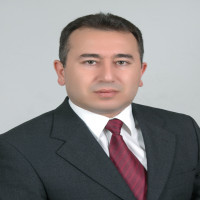
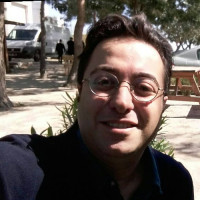




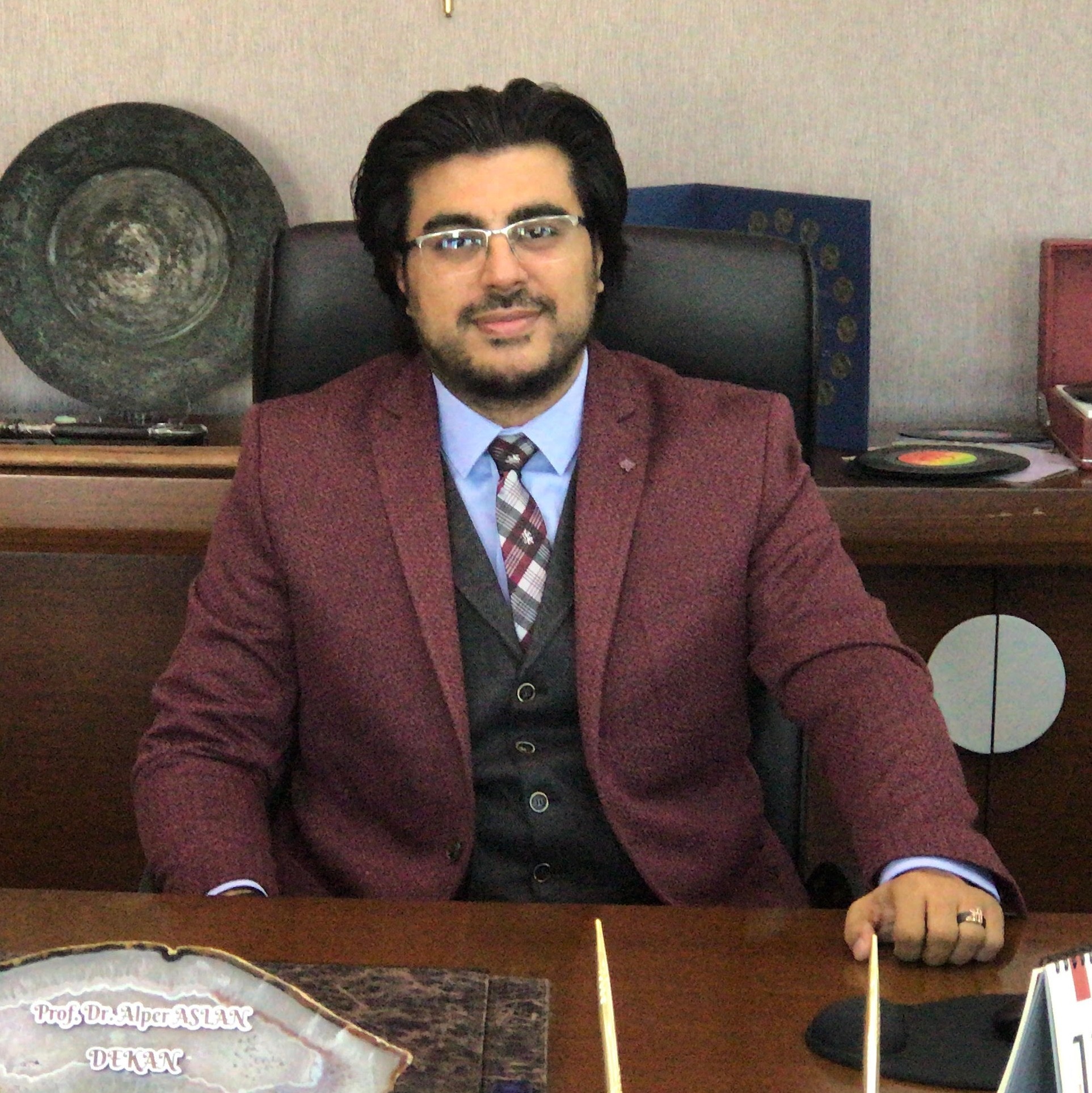

Spelling and Language Editor

Atatürk Üniversitesi - Türk Dili ve Edebiyatı Programlı Lisans (2017)
Atatürk Üniversitesi - Türk Dili Bilim Dalı Yüksek Lisans (2021)
Mersin Üniversitesi - Yeni Türk Dili Bilim Dalı Doktora (Devam Ediyor)
Article Layout Editor

Sağlık Yönetimi Lisans - İstanbul Üniversitesi 2015
Sağlık Yönetimi Yüksek Lisans - Trakya Üniversitesi - 2018
İşletme Doktora - Tarsus Üniversitesi - Devam Ediyor
Auto-generated board - Please Edit This Title
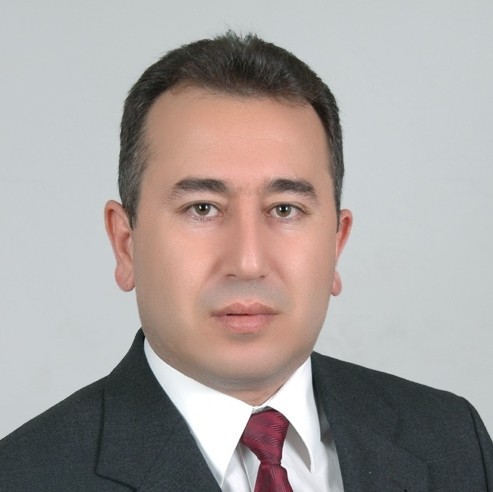

He serves as a faculty member at the Faculty of Economics and Administrative Sciences at Çağ University and also holds the positions of Vice Dean and Coordinator of International Relations and Erasmus. His academic research focuses on digital marketing, electronic commerce, virtual worlds, and corporate social responsibility, and includes articles and conference papers published in internationally indexed journals.
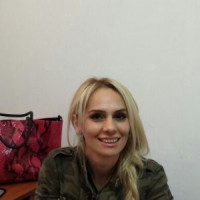
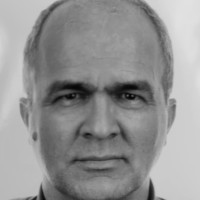
Şenol Kandemir, Lisans derecesini 1994 yılında Ankara Üniversitesi, Siyasal Bilgiler Fakültesi, Maliye Bölümünden almıştır. Yüksek Lisansını Gazi Üniversitesi Sosyal Bilimler Enstitüsü Uluslararası İktisat Ana Bilim Dalında 1998 yılında, doktorasını ise Gazi Üniversitesi Sosyal Bilimler Enstitüsü İktisat Politikası Ana Bilim Dalında 2006 yılında tamamlamıştır. 1995-2006 yılları arasında T. Vakıflar Bankası T.A.O. da Müfettişlik görevinde bulunmuş, 2006 yılında Yardımcı Doçent unvanıyla Çağ Üniversitesi kadrosuna katılmıştır. 2006-2018 yılları arasında Hukuk Fakültesi Sekreterliği, 2018-2020 yılları arasında ise Hukuk Fakültesi Dekan Yardımcılığı yapmış olup, 2020 yılı Temmuz ayından bu yana Üniversitenin Genel Sekreterliğini yapmaktadır.

Çağ Üniversitesi İİBF-İşletme Lisans Çağ Üniversitesi-2003
Çağ Üniversitesi SOBE, İşletme Yönetimi Yüksek lisans -2006
Çukurova Üniversitesi, SOBE - İşletme Pazarlama Doktora- 2012
ÜAK- Pazarlama Doçent-2017
Çağ Üniversitesi 2003- Devam ediyor.
Senem Zaimoğlu, Çağ Üniversitesi İngilizce Mütercim-Tercümanlık Bölümü'nde Dr. Öğretim Üyesi olarak görev yapmaktadır. Doktora eğitimini Çağ Üniversitesi İngiliz Dili Eğitimi Anabilim Dalı’nda tamamlamıştır. İlgi alanları arasında ikinci dil öğretmeni eğitimi, dil öğrenme ve öğretmenin psikolojik boyutları, 21. yüzyıl becerileri, İngilizce dil öğretiminde sürdürülebilirlik ve sosyal-duygusal öğrenme yer almaktadır.
Alan Editörü


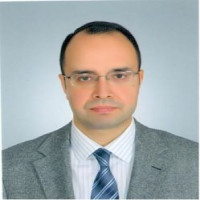


Field Editors

He serves as a faculty member at the Faculty of Economics and Administrative Sciences at Çağ University and also holds the positions of Vice Dean and Coordinator of International Relations and Erasmus. His academic research focuses on digital marketing, electronic commerce, virtual worlds, and corporate social responsibility, and includes articles and conference papers published in internationally indexed journals.
Senem Zaimoğlu, Çağ Üniversitesi İngilizce Mütercim-Tercümanlık Bölümü'nde Dr. Öğretim Üyesi olarak görev yapmaktadır. Doktora eğitimini Çağ Üniversitesi İngiliz Dili Eğitimi Anabilim Dalı’nda tamamlamıştır. İlgi alanları arasında ikinci dil öğretmeni eğitimi, dil öğrenme ve öğretmenin psikolojik boyutları, 21. yüzyıl becerileri, İngilizce dil öğretiminde sürdürülebilirlik ve sosyal-duygusal öğrenme yer almaktadır.
Publication Board

Çağ Üniversitesi İİBF-İşletme Lisans Çağ Üniversitesi-2003
Çağ Üniversitesi SOBE, İşletme Yönetimi Yüksek lisans -2006
Çukurova Üniversitesi, SOBE - İşletme Pazarlama Doktora- 2012
ÜAK- Pazarlama Doçent-2017
Çağ Üniversitesi 2003- Devam ediyor.
Senem Zaimoğlu, Çağ Üniversitesi İngilizce Mütercim-Tercümanlık Bölümü'nde Dr. Öğretim Üyesi olarak görev yapmaktadır. Doktora eğitimini Çağ Üniversitesi İngiliz Dili Eğitimi Anabilim Dalı’nda tamamlamıştır. İlgi alanları arasında ikinci dil öğretmeni eğitimi, dil öğrenme ve öğretmenin psikolojik boyutları, 21. yüzyıl becerileri, İngilizce dil öğretiminde sürdürülebilirlik ve sosyal-duygusal öğrenme yer almaktadır.

Sağlık Yönetimi Lisans - İstanbul Üniversitesi 2015
Sağlık Yönetimi Yüksek Lisans - Trakya Üniversitesi - 2018
İşletme Doktora - Tarsus Üniversitesi - Devam Ediyor
Auto-generated board - Please Edit This Title
Secretary

Sağlık Yönetimi Lisans - İstanbul Üniversitesi 2015
Sağlık Yönetimi Yüksek Lisans - Trakya Üniversitesi - 2018
İşletme Doktora - Tarsus Üniversitesi - Devam Ediyor












